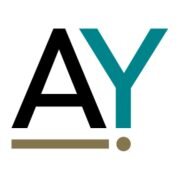Best Nursing Home Abuse Lawyers in Egkomi
Share your needs with us, get contacted by law firms.
Free. Takes 2 min.
List of the best lawyers in Egkomi, Cyprus
1. About Nursing Home Abuse Law in Egkomi, Cyprus
Nursing home abuse in Egkomi, Cyprus is addressed within Cyprus’s general criminal and civil frameworks, applied to long-term care settings. Residents have protections against physical, sexual, emotional abuse and neglect by caregivers, as well as safeguards for privacy and dignity. The legal regime relies on the Cyprus Penal Code for criminal acts and on civil remedies for compensation, as well as welfare regulations that govern care facilities and licensing.
In practice, families and residents may pursue civil claims for damages and may report suspected abuse to authorities. Care homes operate under oversight from the Ministry responsible for welfare and social services, with inspections and licensing designed to protect residents. Always consider consulting a Cypriot solicitor (advokat) who can explain how these statutes apply to your specific situation in Egkomi.
For reporting and enforcement, you can contact the Cyprus Police and the Ministry of Labour, Welfare and Social Insurance. These bodies provide pathways for immediate protection and longer term remedies. See official resources linked below for guidance on reporting and rights.
Key takeaway: Nursing home abuse cases in Egkomi are addressed through a combination of criminal safeguards, civil remedies, and regulatory oversight under Cyprus law. Begin with a formal report if safety is at risk, then seek legal counsel to evaluate civil claims and regulatory complaints.
Relevant government resources for reporting and rights include the Cyprus Police and the Ministry of Labour, Welfare and Social Insurance. Visit Cyprus Police and Ministry of Labour, Welfare and Social Insurance for official guidance and procedures.
2. Why You May Need a Lawyer
In Egkomi, a lawyer can help you navigate both criminal investigations and civil claims arising from nursing home abuse. Below are concrete, real-world scenarios where legal counsel is essential.
- A resident suffers a severe fall after trip hazards are ignored by a caregiver, and the family wants to report criminal negligence and pursue damages. A solicitor can collect medical records, coordinate with investigators, and file civil claims.
- You discover unexplained withdrawals from a resident’s bank account by staff, suggesting financial abuse. A legal counsel can assist with criminal reporting and tracing funds, as well as securing restitution.
- A resident is moved to a different facility without proper consent or notice, prompting a rights and consent dispute. A lawyer can challenge the transfer and protect the resident’s autonomy under applicable laws.
- The facility fails to provide adequate medical care, resulting in deteriorating health. A solicitor can help obtain expert medical reviews and build a damages case for negligence or breach of contract.
- Privacy and data protection concerns arise when a facility shares medical information without consent. A lawyer can enforce residents’ data protection rights under Cyprus law.
- You need to understand whether your situation qualifies for criminal charges, civil damages, or both, and how to coordinate between police investigations and civil litigation. A lawyer can explain best routes and likely timelines.
3. Local Laws Overview
Cyprus relies on general criminal and civil law to address nursing home abuse, supplemented by welfare regulations for care facilities. Two key statutory pillars commonly cited in this area are:
- Penal Code Cap. 154 - The Cyprus Criminal Code governs offences such as assault, ill-treatment, exploitation, and neglect. It applies to abusive acts by care staff toward residents in nursing homes and similar settings. (Cyprus statutory framework; enforcement through the Police and courts.)
- Data Protection Law No. 125(I)/2018 - This law regulates the processing of personal data, including health information, in Cyprus. Nursing homes must protect resident privacy and handle records in compliance with data protection standards. Updated provisions continue to govern investigations and evidence handling. For official guidance, see the Cyprus Data Protection Authority.
- Welfare and Social Services Regulations - These regulations, administered by the Ministry of Labour, Welfare and Social Insurance, govern licensing, inspections, and operation of long-term care facilities. They set standards for resident care, safety, and rights within care homes, and provide the regulatory framework for overseeing Egkomi facilities.
Practical tip: When dealing with an abuse matter, combine criminal avenues with regulatory complaints. The Police handle immediate safety and criminal inquiries, while welfare authorities address licensing and facility compliance. See official resources for guidance on reporting and rights: Cyprus Police, Ministry of Labour, Welfare and Social Insurance.
4. Frequently Asked Questions
What is considered nursing home abuse in Cyprus?
How do I report suspected abuse in Egkomi right now?
What is the timeline after I file a police report?
What is the difference between criminal charges and civil claims?
Can I hire a solicitor to handle both criminal and civil aspects?
How much does it cost to hire a nursing home abuse lawyer in Cyprus?
Do I need a court appearance if the case is handled by a lawyer?
Is there a statute of limitations for elder abuse claims?
What documents should I gather for a claim in Egkomi?
What is the role of the Data Protection Authority in an abuse case?
Should I involve the regulator if care standards are not met?
Is a power of attorney or guardianship relevant to nursing home abuse cases?
5. Additional Resources
These government and official organizations provide guidance and services related to nursing home care, elder protection, and data privacy in Cyprus.
- Cyprus Police - Official reporting and investigation of suspected abuse or criminal acts in care settings. https://police.gov.cy
- Ministry of Labour, Welfare and Social Insurance - Oversees welfare services, licensing and inspections of long-term care facilities. https://www.mlsi.gov.cy
- Cyprus Data Protection Authority - Supervises personal data protection in health and care settings, including resident records in nursing homes. https://dataprotection.gov.cy
6. Next Steps
- If there is imminent danger, call emergency services or contact the Cypriot Police immediately. Do this within 24 hours of noticing the issue.
- Gather essential records: medical reports, treatment notes, admission papers, and any communications with the facility. Assemble recent payment and contract documents.
- Contact a Cypriot solicitor who handles elder care and nursing home abuse to discuss your case. Request a formal case assessment within 1 week of your initial consultation.
- File an initial complaint with the care facility and with the welfare regulator if warranted. Retain copies and confirmations for your records. Expect a facility response within 2-6 weeks.
- If needed, file a police report for any suspected criminal conduct. Obtain the incident number and keep it for your attorney. This process can take several weeks to months depending on complexity.
- Your solicitor will determine whether to pursue civil damages, criminal charges, or both. Civil actions in Cyprus may take 12-24 months or longer depending on case complexity.
- Review settlement options and understand the potential outcomes, including compensation, changes to facility operations, and ongoing monitoring of care. Plan updates with your counsel every 6-12 weeks as the case progresses.
Lawzana helps you find the best lawyers and law firms in Egkomi through a curated and pre-screened list of qualified legal professionals. Our platform offers rankings and detailed profiles of attorneys and law firms, allowing you to compare based on practice areas, including Nursing Home Abuse, experience, and client feedback.
Each profile includes a description of the firm's areas of practice, client reviews, team members and partners, year of establishment, spoken languages, office locations, contact information, social media presence, and any published articles or resources. Most firms on our platform speak English and are experienced in both local and international legal matters.
Get a quote from top-rated law firms in Egkomi, Cyprus — quickly, securely, and without unnecessary hassle.
Disclaimer:
The information provided on this page is for general informational purposes only and does not constitute legal advice. While we strive to ensure the accuracy and relevance of the content, legal information may change over time, and interpretations of the law can vary. You should always consult with a qualified legal professional for advice specific to your situation.
We disclaim all liability for actions taken or not taken based on the content of this page. If you believe any information is incorrect or outdated, please contact us, and we will review and update it where appropriate.









